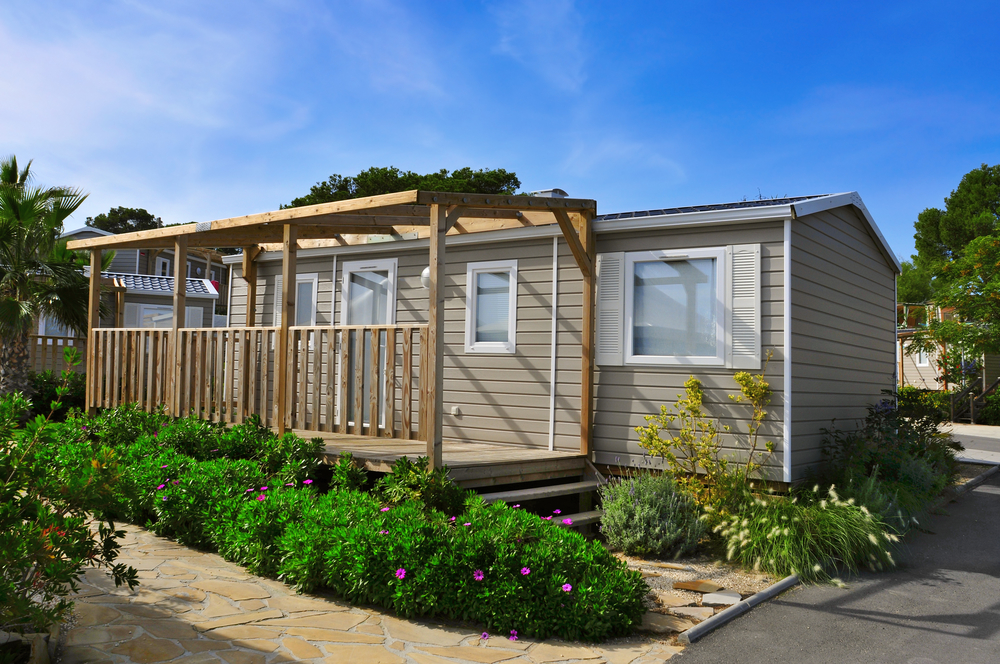
With the long summer days of scorching heat we’ve had in the summer of 2022, it’s difficult to imagine that it will soon be winter and the end of another season for your holiday home. As the seasons change, it may be helpful to review aspects of the relationship between you and your caravan park managers and owners.
At the same time, let’s also review some other issues concerning the use of your static home as winter approaches.
Can I live permanently in my static caravan?
This is probably the single most frequently asked question that is put to us about static homes or holiday caravans – and, more often than not, the answer is likely to be no.
Typically, the choice is entirely out of your hands, and you will need to investigate the situation carefully because:
- the local authority licence the caravan park owners are required to hold may be for seasonal, recreational use only and prohibit residence the whole year round;
- a paper submitted to the House of Commons Library makes clear the distinction between “residential mobile homes” – in which the owner can live all year-round and static caravans intended for holiday use only;
- to comply with the terms of the licence they have been granted, therefore, the site owners may prohibit permanent residence; and
- your static caravan insurance is most unlikely to provide cover for its use as your main home and permanent place of residence.
Is insurance a legal requirement for static caravan ownership?
There may be no formal legal requirement for such insurance – although some form of cover may be necessary if you took a loan for the purchase of your caravan.
Your site owner may also demand that you have a minimum level of insurance cover to ensure your indemnity against – and ability to meet – claims from other users of the site who might have suffered an injury and sustained other financial loss for which you are held liable as the caravan owner.
In most cases, the site management does not have the right to insist that you purchase such insurance from them – so, that means you can shop around for the most suitable static home insurance deal.
Can I let out my caravan during the holiday season to obtain income?
The question raises several important issues:
- depending upon your site agreement (covering the lease of your pitch), you might need the site owner’s permission before letting out your holiday home;
- in some cases, the local authority’s licence may not have authorised the site for holiday letting use but only for that of owners;
- if you have existing static insurance, you may need to discuss your plans with your insurance provider and possibly upgrade your cover, as letting your caravan out may invalidate any existing policy if it is aimed exclusively at owner-users;
- if you have purchased your caravan using a loan, some lenders may require that you obtain their permission before letting your caravan out as a commercial activity; and
- remember that the law may oblige you to declare any income obtained as part of your tax liabilities.
Holiday park site owners and their responsibilities in times of bad weather
With winter storms and severe weather seeming to be the ‘norm’ over the last few years, it’s not just caravan and park homeowners who feel the effects, but even people living in bricks and mortar homes – no structure is safe from extreme weather.
So, what can you do if your caravan becomes waterlogged, flooded, or snowed in? Here we look at your site owner’s obligations and yours:
Duty of access and safety
- various pieces of legislation place a park site owner under a legal obligation to maintain safe and reasonable access to various areas around their site – this may put them under the obligation to clear snow, mud or water from roads and paths leading to individual caravans and the site’s facilities and amenities;
- at the same time, though, you may also have the responsibility to keep your pitch clear and safe – the extent of those responsibilities will be set out in more detail both in your lease agreement with the site owners and the conditions set out in your static caravan insurance documents;
- of course, the law cannot specify in advance every conceivable circumstance that might arise and therefore definitive answers about what is or is not reasonable can’t always be given in advance;
Discussion before escalation
- so, what happens if you have concerns about the current state of your site – if severe weather has resulted in problems accessing your site or your pitch, bearing in mind that the site owners may be trying to deal with numerous problems all at the same time;
- practically, it may be difficult or impossible for them to progress every owner’s concerns simultaneously in such exceptional circumstances and they may need to prioritise;
- try to understand their priorities and approach, and be patient – so, if you suspect that your patience is being abused and, in fact, they’re sitting on their hands, then speaking to them politely is always the preferable first step, bearing in mind that sometimes inaction arises as a result of an honest oversight or misunderstanding and a friendly word is all that’s required;
- if that still results in nothing but inertia and in the meantime, you are unable to safely access your caravan, then you may need to write a formal letter or note confirming the situation and setting out exactly what it is you need to be able to do;
- make clear, politely, in your letter that you believe the current position means that they are in breach of prevailing legislation demanding that safe access is provided – that might well do the trick, but if it doesn’t, you may need to take legal advice and consider further action.
How do I keep my static home condensation-free?
Condensation can become a big problem in static homes. It can occur at any time, but it is often more of a problem later in the year as the nights become cooler.
Not only can it be unsightly and unpleasant, but it can also lead to problems like damp and mould. Damp can damage your interior and your furnishings, and mould spores can cause health problems, especially for people who suffer from health issues like asthma.
Although problems with condensation can be frustrating, by following a few simple tips you can reduce the likelihood of any problems occurring – keeping your static home drier and more comfortable.
Here are some tips and suggestions for keeping condensation at bay:
Make sure you ventilate properly
- condensation forms mainly because of a lack of ventilation;
- to improve ventilation, make sure you let the air circulate by opening the windows – in warmer weather, of course, you can leave the windows open throughout the day and night provided you pay attention to security and close them again when you go out;
Improve the insulation
- if your static home does not have good ventilation, you might try to prevent draughts by blocking up the ventilation points – this is not a good idea and may only serve to make the problem worse;
- instead, work try ways of keeping the interior warmer by installing better insulation and even double-glazing the windows – that way you won’t be tempted to block any air vents and you’ll improve the overall ventilation;
Heat your caravan slowly
- the steps you take to heat your static caravan can also affect the extent of any condensation;
- have you noticed how often people come in from outside and immediately switch on the heating to its highest setting – this may not be the best option;
- it will prove more efficient if you keep the heating on a low setting for longer – that will not only maintain a comfortable ambient temperature but also encourage the warmth to penetrate the cupboards and furniture to keep them dry too;
Use extractor fans
- extractor fans are often used in kitchens and bathrooms because that’s where the atmosphere is likely to hold the most moisture – so, you might want to think about buying and installing some extractor fans;
- use the extractor fans when you are in the shower or using the kitchen and leave them running for a while after you’ve finished – you may also want to open the windows to increase the ventilation further;
Dry clothes outside
- it might be tempting, but if you dry the washing inside your static home you’ll quickly add a lot of moisture to the air – avoid doing so whenever you can and if you have no option but to dry the washing inside at least open as many windows as possible;
Invest in a dehumidifier
- a dehumidifier is a simple and cost-effective way to cut down on humidity in your static home – add one or two in your caravan and you will help to reduce condensation;
Do not block air vents
- air vents should be kept clear at all times, on no account should they be blocked in your attempts to keep warm, since they allow gases and moisture to escape;
- blocking them can be highly dangerous and can trigger carbon monoxide poisoning – which may be fatal.
Do I need a TV licence for my static caravan?
Finally, the vexed question of whether you need a TV licence for your static caravan – the answer may be trickier than you imagined and requires a little explanation.
The key question is whether or not you will be using any television installed in your static caravan at the same time that your normal television is being used in your permanent home. If the answer to that is no, then you may not need a separate licence for your caravan.
The TV Licensing website explains how you may submit a “non-simultaneous use declaration” which has been specifically designed for users of televisions in static caravans.
If you are likely to be using a TV in your caravan while someone at your normal place of residence is also using the TV there – you have teenage children who have stayed at home while you are on holiday, for instance – then you will need a separate licence for your caravan.

